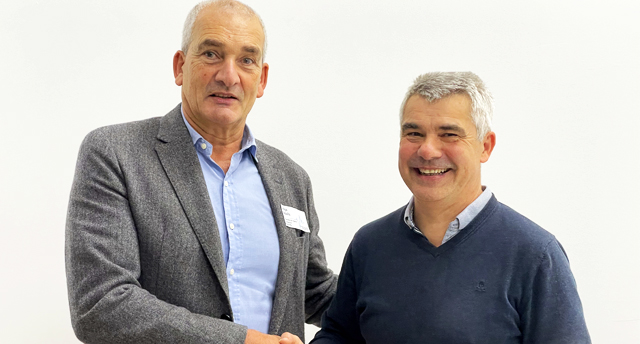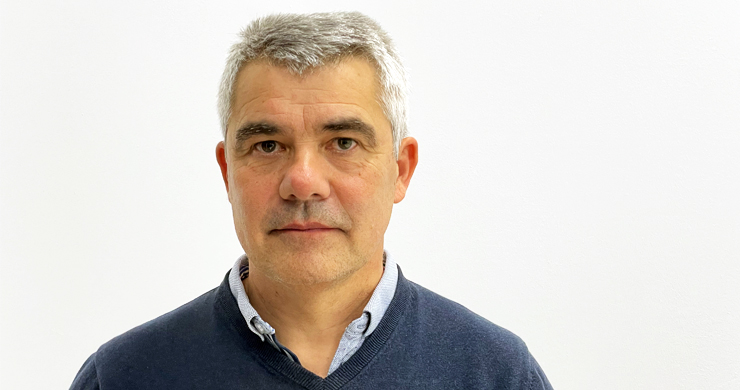Today we talk to Carlos Recio, CEO of Idrus, a technology startup that focuses its activity on a single action: automated telephone answering. Thanks to its robots, call centers can offer a quality, accurate and always available service.
What is the difference between your proposal and other autoresponders on the market?
To clarify the difference a bit, our robots do not say “press 1 or press 2”, they speak like a person. They speak like a person and we mark the tenses, intonations, pauses and everything like a person. So that, sometimes, a curious thing has happened to us: sometimes we do surveys and I remember one we did at the beginning. We had already taken 30 survey questions. It was a very long survey. We had been talking to the person for 7 or 8 minutes. And the person said to us: “Oh, my child, what a lot of things you are asking me!” And it was a robot!
We always say it’s a robot, but people are so comfortable talking to the robot that to them it’s like it’s a real person they’re talking to.
Another thing that sets us apart is that we do just that: automated telephone answering, both inbound and outbound. Anything that is done with volume over the phone is susceptible to automation. Or at least to automate all that part that is always the same. Because basically the operators have a procedure manual which is how they have to attend to the people who call. So that’s a little bit what the robot does.
All of this is coordinated with the people because it collaborates with the people in such a way that if there is something it cannot attend to, it passes the call on. Sometimes it is the other way around. Sometimes we put the robot behind the people in such a way that when the call center is saturated, it can no longer take any more calls, it goes to the robot, which is the one that answers them, takes note and if it can’t, it sends it to the priority queue of the people, but to the priority queue so that you can be attended immediately.
In this way what we get is excellent service. What the customer gets is an excellent telephone service. The same goes for outgoing calls.
In outgoing calls, one of the most difficult or tiresome things is: I call someone, they don’t pick up; I call again, they don’t pick up; I call two hours later, they don’t pick up…. All this is done automatically by the robot, it does not cost it and all this work is very unpleasant for a person, to be handling all this, he picks me up, he does not pick me up and I call him again. So, in the same way, we also optimize all the work of the call centers.
In addition to AI, what other cutting-edge technologies are you working on to provide ROBOCIA, your assistant, with new capabilities?
Our product, Robocia, is based on artificial intelligence, but we use many additional technologies. Some of those technologies are based more on artificial intelligence. The core of our product is the machine learning part, of understanding what is the meaning of what the caller is saying.
But we also manage the voices we use, which are done with artificial intelligence. There we use different manufacturers’ products in terms of voices. We talk to the client, because sometimes they want a voice of a more mature lady or a more mature man, a younger girl or a younger guy… Depending on that we choose the voice and also depending on the language.
Our product, Robocia, works in 75 languages including Spanish, Catalan, Galician and Basque. And depending on what the customer wants, we choose the type of voices and we also usually propose a name. In Cantabria we called him Jano when we did the telephone service for vaccination.
We are looking for a name that gives it a certain personality and humanizes that deal even more. And it also allows them to do some marketing and, as we know it is going to be a success, the success is concretized in the name of the robot. They are different names but the objective and the product is the same.

Felipe Rebollo and Carlos Recio.
So, depending on where it is used, it is given different names, but all for the same objective…
The product is Robocia, but then when we choose the speed of the voice, if it is a boy or a girl, when we particularize it with a specific name or for a specific hospital, or for a municipality that fits your strategy, it is not the same to say Tamara in the Canary Islands than Jano in Cantabria. Each place has its own names and peculiarities. We always advise that the name should not be very well known and if possible sonorous, so that people are more comfortable and more memorable.
Familiar names for a service that seeks to be natural…
At the end of the day, it’s all about making people feel comfortable when interacting. And people like to be personalized, to be told what the person’s name is, to be treated nicely and kindly, and the robot has that too. The robot is constantly giving positive feedback.
You answer something and he says “great”. This is something that very nice people do, but when you are in the call center under pressure of time and results, it ends up being very difficult. The good thing about the robot is that it never forgets to say “please”, it never forgets to say “great”, “thank you”, “you have been very kind”… and so it makes people feel comfortable, because deep down you are treating them very well and that is what we all like, to be treated very well.

